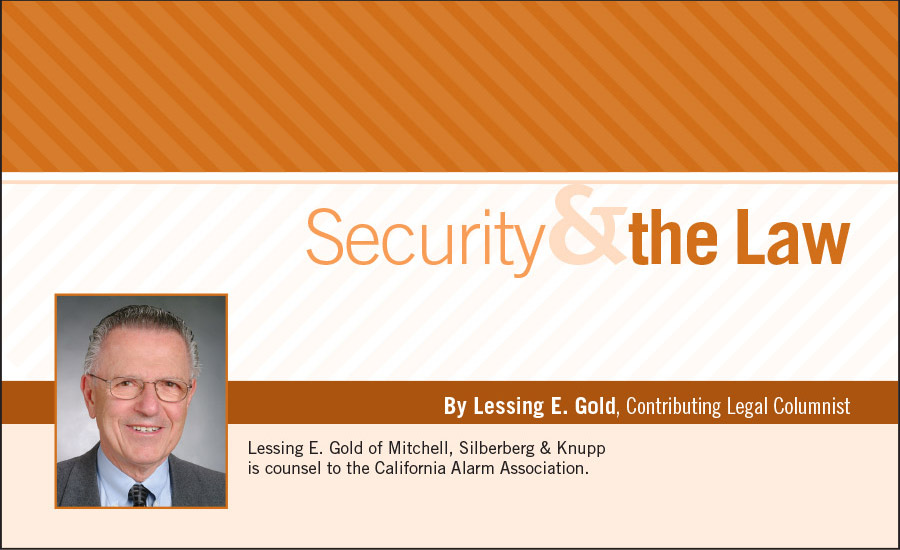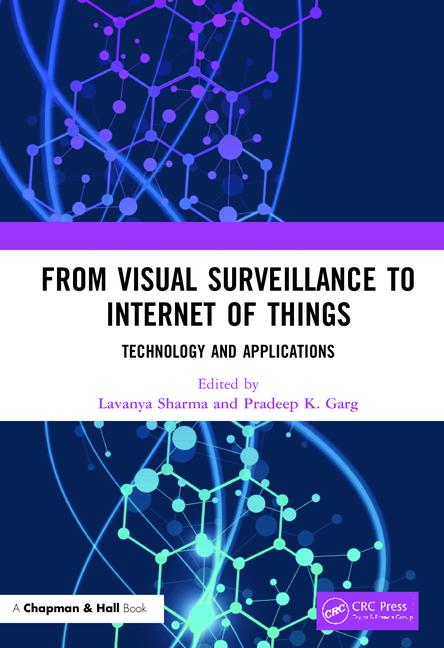The question arose whether a victim can incur the economic loss of installing a security system as a direct result of the defendant’s conduct.
The defendant was convicted of first degree burglary and the trial court included the cost of certain home security improvements made by the victim in the order of restitution. The court of appeals affirmed its judgment indicating that the defendant was properly ordered to pay the victim restitution for installation of a home alarm system, new door locks and deadbolts. Section 1202.4 subdivision (f) of the California Penal Code permits restitution for security costs incurred by the victim of a nonviolent felony notwithstanding the more specific provisions of Section 1202.4 requiring the court to award such restitution to the victim of a violent felony. The defendant was convicted of first degree burglary and appealed his conviction, of which the aspects of that case will not be discussed in this article. The defendant challenged the trial court’s Order of Restitution to the extent it included the cost of certain home security improvements made by the victim pursuant to the penal code section.
The court determined that the felony is not a “violent felony” and the defendant contended that the statute does not permit restitution for security improvements against the defendant not convicted of a “violent felony.”
The defendant was sentenced to prison for a two-year term and the court imposed mandatory fines and ordered him to pay $2,351.34 in direct victim restitution that included reimbursement for a burglar alarm and new door locks.
The court, referring to the California Constitution, indicated that it is the unequivocal intention of the People of the State of California that all persons who suffer losses as a result of criminal activity shall have the right to seek and secure restitution from the persons convicted of the crimes causing the losses they suffered.
The defendant relied on the provision of the criminal code that stated, “So long as they are incurred related to a violent felony as defined in Subdivision C of Section 667.5.” The People argued that so long as the loss is proven, the sentencing court may exercise its discretion to order direct restitution for the loss under the more general authorization in Section 1202.4 Subdivision (f) for nonviolent felonies. The court went on to state that when used in a statute, words must be construed in context, keeping in mind the nature and obvious purpose of the statute where they appear.
The court then cited Section (f) (3) (J) which states that the court’s restitution order “shall be of a dollar amount that is sufficient to fully reimburse the victim or victims for every determined economic loss incurred as a result of the defendant’s criminal conduct, including, but not limited to all of the following … expenses to install or increase residential security incurred related to a violent felony.”
The court pointed out that there is no dispute that the defendant’s conviction was for a nonviolent felony, but that the provision of the code requires the court’s restitution order to be for an amount sufficient to reimburse security expenses related to violent felonies. It establishes a minimum. No language supports the contention that it somehow precludes restitution to victims of nonviolent felonies.
The court further pointed out that, “Our Constitution reflects the voters’ unequivocal intent to ensure that all persons who suffer losses as a result of criminal activity shall have the right to seek and secure restitution from the persons convicted of the crimes causing the losses they suffer and specified that the right applies in every case, regardless of the sentence or disposition imposed in which a crime victim suffers a loss.”
Therefore the court held that the statute permits restitution for security costs incurred by the victim of a nonviolent felony, referring to a previous case holding that where a victim incurs the economic loss of installing a security system as a direct result of a defendant’s conduct, the trial court may include that amount in a victim’s restitution award regardless of the crime of conviction.
READERS ASK
Q: We are a limited liability company and we fully understand that the limited liability company members of the company are dealt with as shareholders and do not have individual liability. I have now been told we are personally liable for taxes. Is that correct?
A: You are correct in your assumption that members of the limited liability company are not personally responsible for the obligations of the LLC. The LLC, however, is taxed as a partnership and therefore the individual members of the limited liability company are responsible for the payment of taxes and are personally liable in the event that the taxes are not paid.
The benefit of an LLC is two-fold: First, as you indicated, from a liability standpoint the members are dealt with as shareholders of a corporation; second, the members of the LLC are taxed as a partnership, which avoids the double taxation to the LLC members that would occur to shareholders of a “C” Corporation. To be taxed as a partnership is a benefit to the members; however, as mentioned above, the members are individually liable for nonpayment of taxes.







